Results of VATAHA’s Workshop at the III Ukrainian Community Forum in the Netherlands
VATAHA has published a practical roadmap for Ukrainian cultural workers to foster deeper connections between Ukrainian and Dutch audiences. This guide serves as a tool to help cultural practitioners present Ukraine’s identity effectively in intercultural contexts.
The roadmap consolidates ideas from the III Forum of the Ukrainian Community in the Netherlands, which VATAHA held to promote better understanding of how Ukrainians are perceived in the Netherlands and how we can – as a community – shape it.
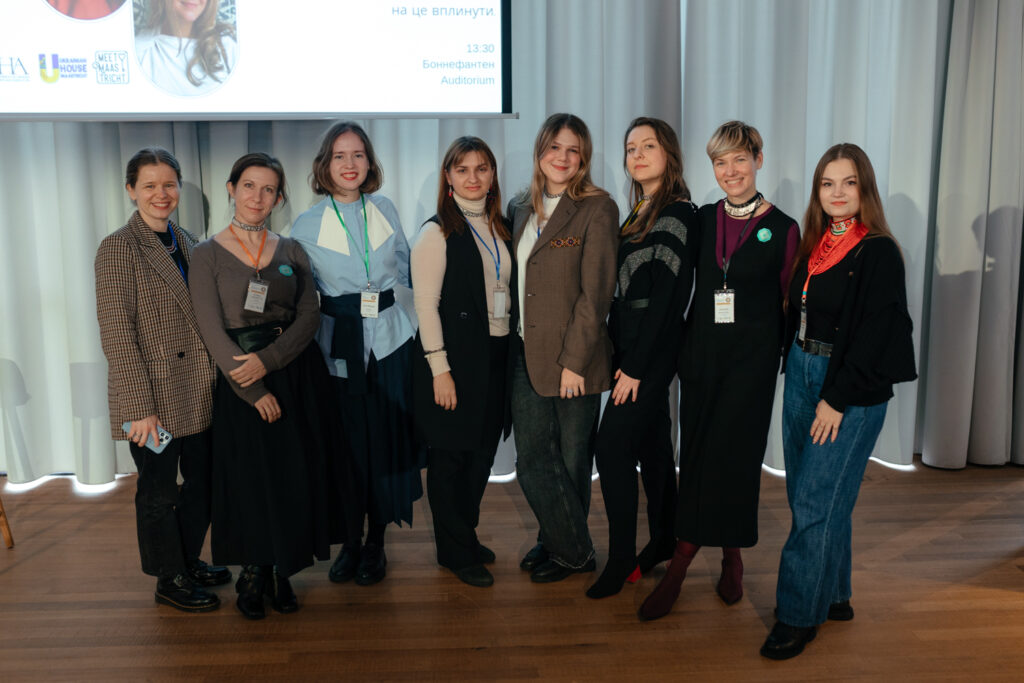
Over the past two years, Ukrainian cultural workers and enthusiasts abroad have made significant efforts to share the richness of Ukrainian identity and culture with local audiences. However, this journey has often been guided by intuition and an immediate response to the full-scale invasion rather than a structured approach.
While initially made for a Dutch reader, this guide’s principles can inspire Ukrainians’ cultural diplomacy efforts in other countries, reinforcing the idea that cultural exchange is a two-way street that enriches all participants. Crafted in Ukrainian, the document is available through the link below
Key Elements of Ukrainian Identity
Participants agreed that several elements are central to Ukraine’s identity:
Creativity – A dynamic and innovative force shaping Ukraine today.
Language – A key to understanding and connection.
Tradition – Deeply rooted in culture and historical narratives.
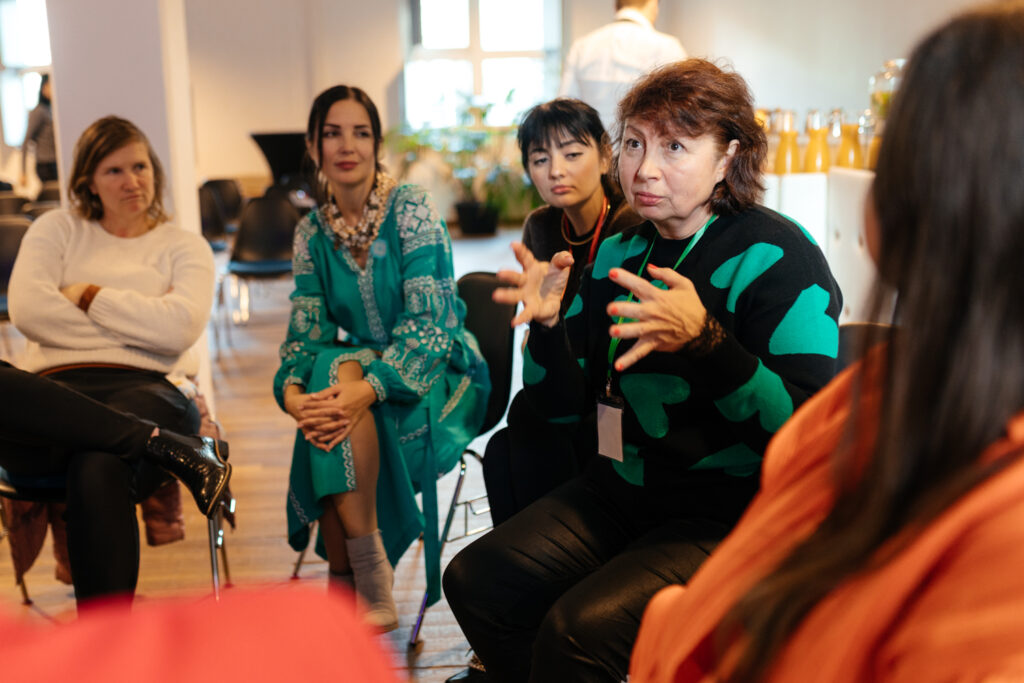
Workshop Highlights and Results
The workshop emphasized the importance of structured, intentional communication and provided actionable insights for fostering deeper connections between Ukrainian and Dutch audiences. Here are some key takeaways:
Language as a Gateway
Language is more than words – it’s a pathway to mutual understanding. The Dutch are eager to learn about other cultures, and interactive formats like language clubs, calligraphy workshops, or lectures that connect historical parallels resonate well.
Practical suggestions include organizing Ukrainian language clubs, creating apps for language learning, and hosting events that compare Ukrainian and Dutch cultural milestones. These activities deepen engagement and foster respect for their shared histories.
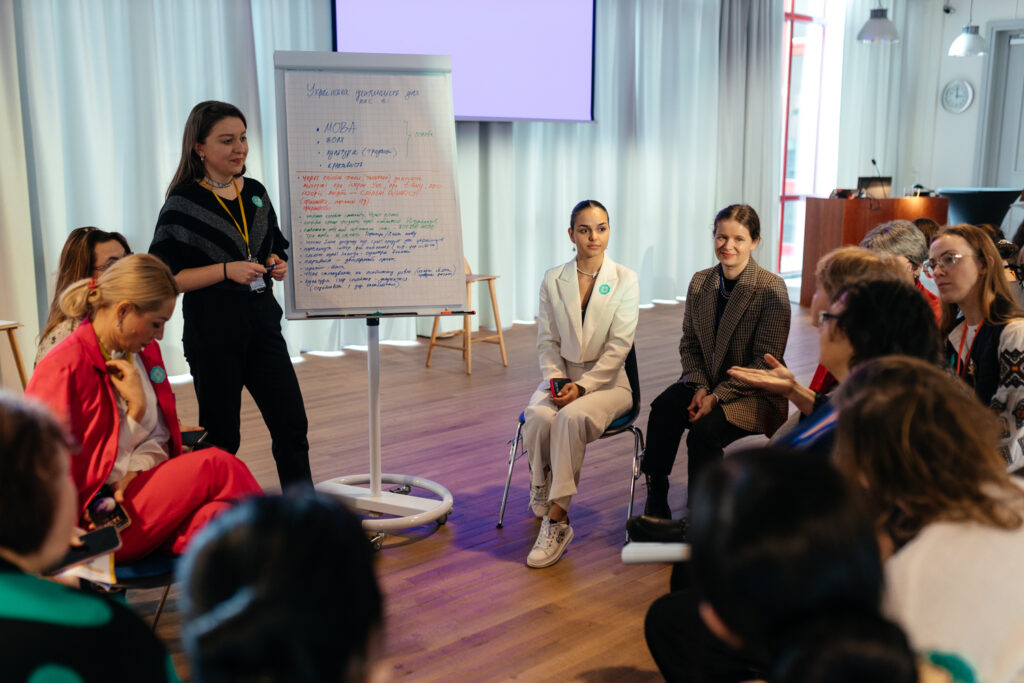
The workshop emphasized the importance of structured, intentional communication and provided actionable insights for fostering deeper connections between Ukrainian and Dutch audiences. Here are some key takeaways:
Culture and Creativity: A Common Ground
Cultural events such as choral singing, traditional crafts, and contemporary art exhibitions provide powerful opportunities for dialogue. For instance, integrating Ukrainian folk songs or calendar-ritual music into joint performances with Dutch choirs, like the successful Korali collaboration in the Netherlands, has proven effective. Similarly, hosting cooking workshops featuring Ukrainian dishes like borshch or varenyky allows participants to immerse themselves in Ukrainian traditions while discovering commonalities in Dutch and Ukrainian cuisines.
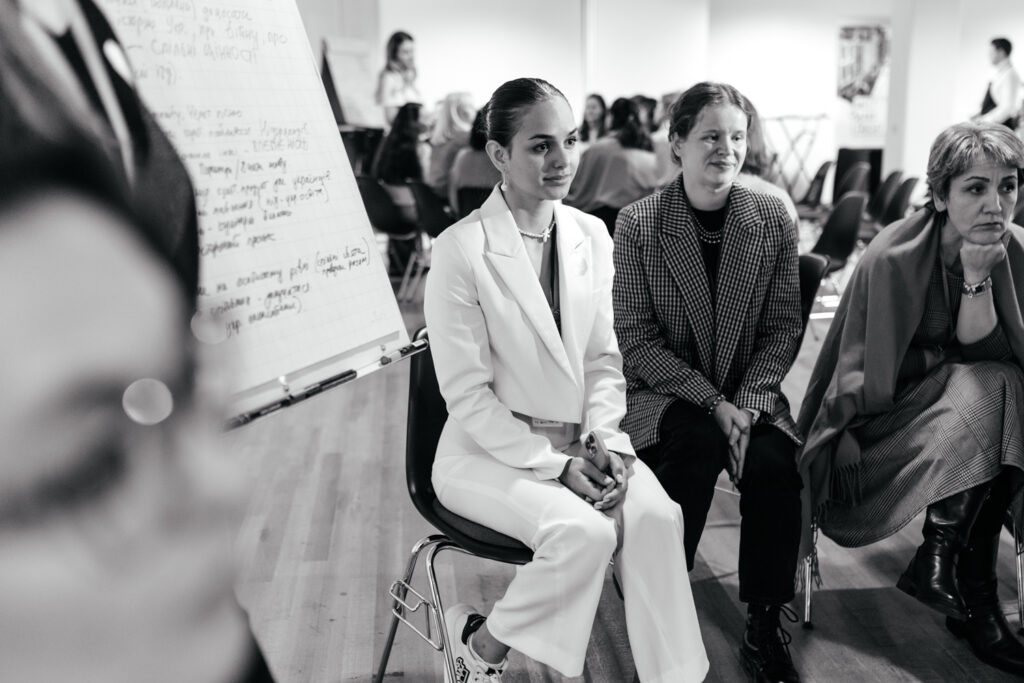
Forming Confidence
Ukrainians abroad must reject the inferiority complex and proudly present their culture. It is possible through learning the language of the country they live in and respecting one’s culture while actively promoting it.
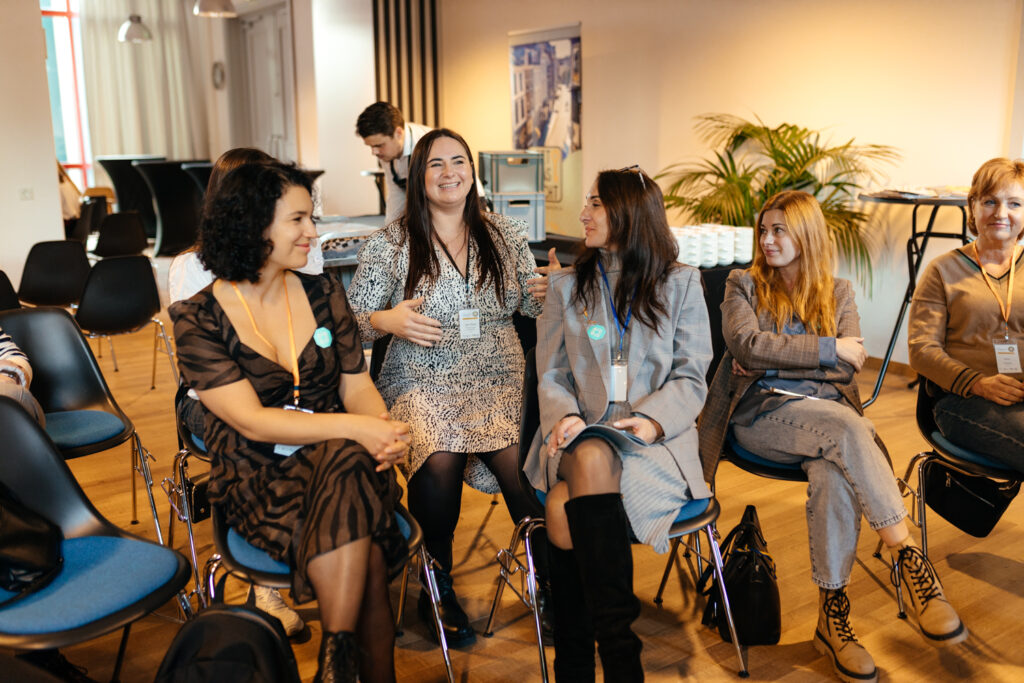
Charity as a Platform for Solidarity
Cultural events tied to charity amplify their impact. The Dutch are eager to contribute to causes that align with their values, such as supporting Ukrainian civilians and veterans. Transparent communication about the use of funds builds trust and strengthens cross-cultural ties.
For instance, VATAHA’s activities, such as the annual Run for Ukraine or last year’s silent auction and concert by Ukrainian artists Evening of Hope, not only promoted Ukrainian culture and commemorated the fallen heroes but also raised necessary funds to support the Ukrainians’ fight for freedom.
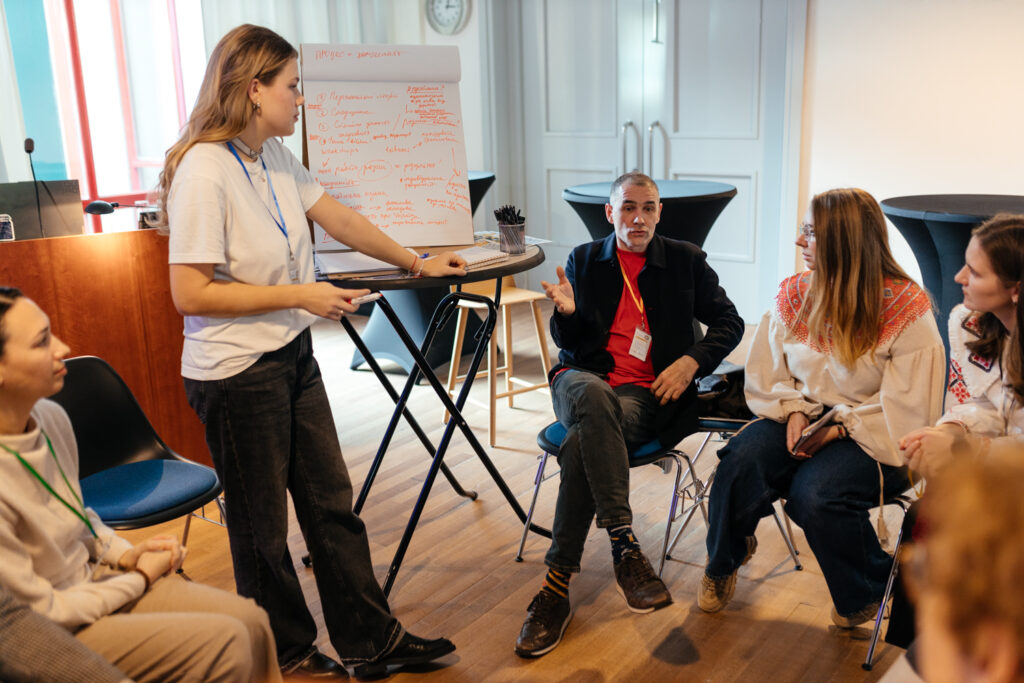
At the Workshop
The III Forum of the Ukrainian Community in the Netherlands invited participants to look back at successful strategies and think of new and efficient approaches to communicating Ukrainian identity. Thus, participants identified both strengths and gaps in how Ukrainian culture is presented. The goal was to craft a practical roadmap to empower cultural workers abroad to present Ukraine’s identity effectively, not only in the Netherlands but globally.

The workshop was designed and hosted by Daria Lysenko, Dasha Lohvynova, and Tetiana Rumilets, who also consolidated the results into the roadmap. For questions or comments, reach out to info@vataha.nl.
If you would like to support VATAHA in organizing events like these, you can make a tax-deductible donation here.